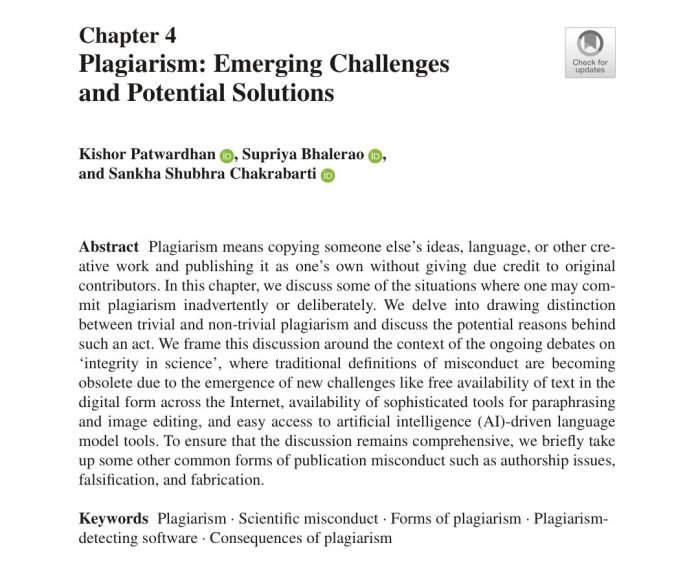Plagiarism: Emerging Challenges and Potential Solutions
Kishor Patwardhan, Supriya Bhalerao, Sankha Shubhra Chakrabarti
Abstract
Plagiarism means copying someone else’s ideas, language, or other creative work and publishing it as one’s own without giving due credit to original contributors. In this chapter, we discuss some of the situations where one may commit plagiarism inadvertently or deliberately. We delve into drawing distinction between trivial and non-trivial plagiarism and discuss the potential reasons behind such an act. We frame this discussion around the context of the ongoing debates on ‘integrity in science’, where traditional definitions of misconduct are becoming obsolete due to the emergence of new challenges like free availability of text in the digital form across the Internet, availability of sophisticated tools for paraphrasing and image editing, and easy access to artificial intelligence (AI)-driven language model tools. To ensure that the discussion remains comprehensive, we briefly take up some other common forms of publication misconduct such as authorship issues, falsification, and fabrication.
The full chapter can be assessed at: Plagiarism: Emerging Challenges and Potential Solutions





